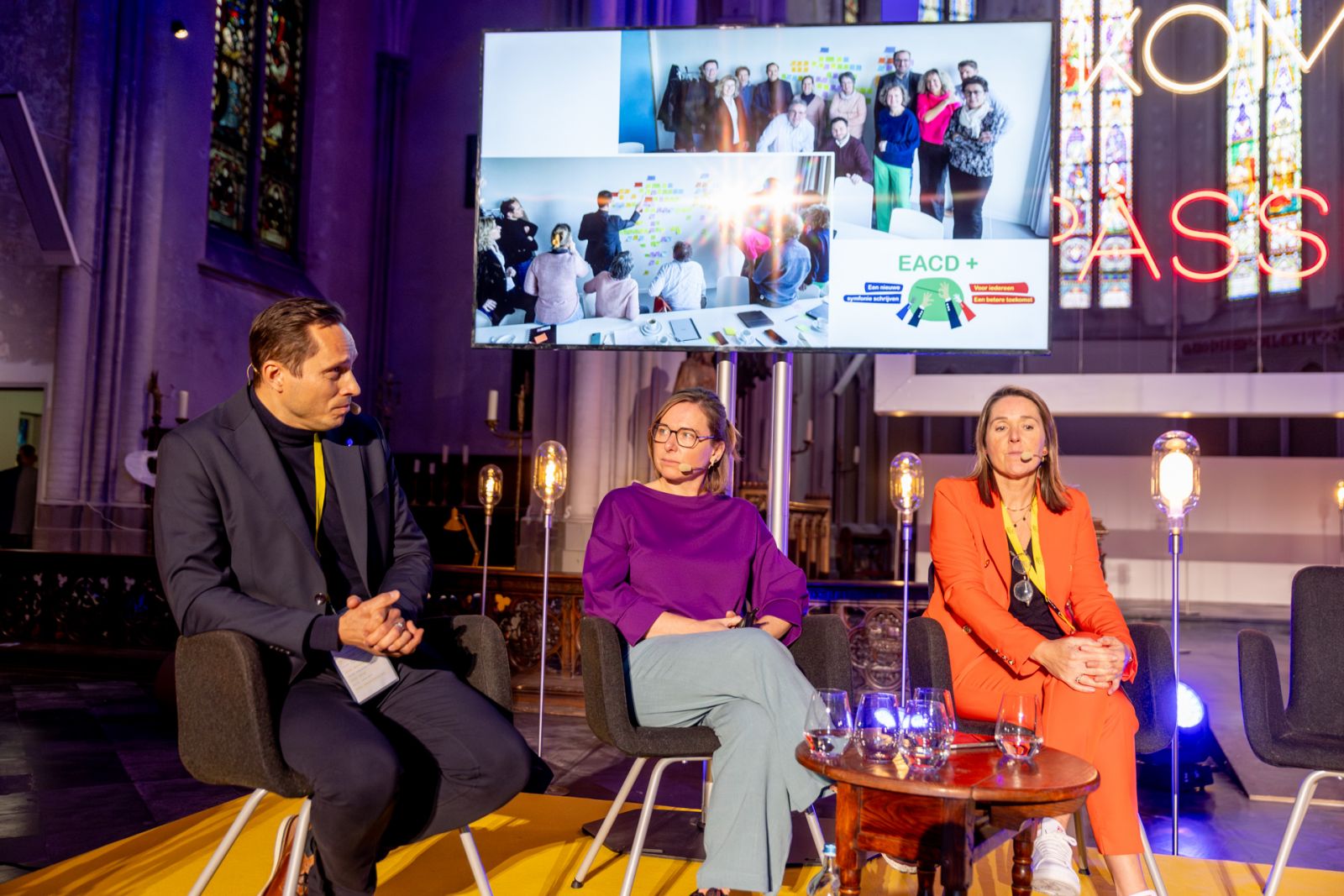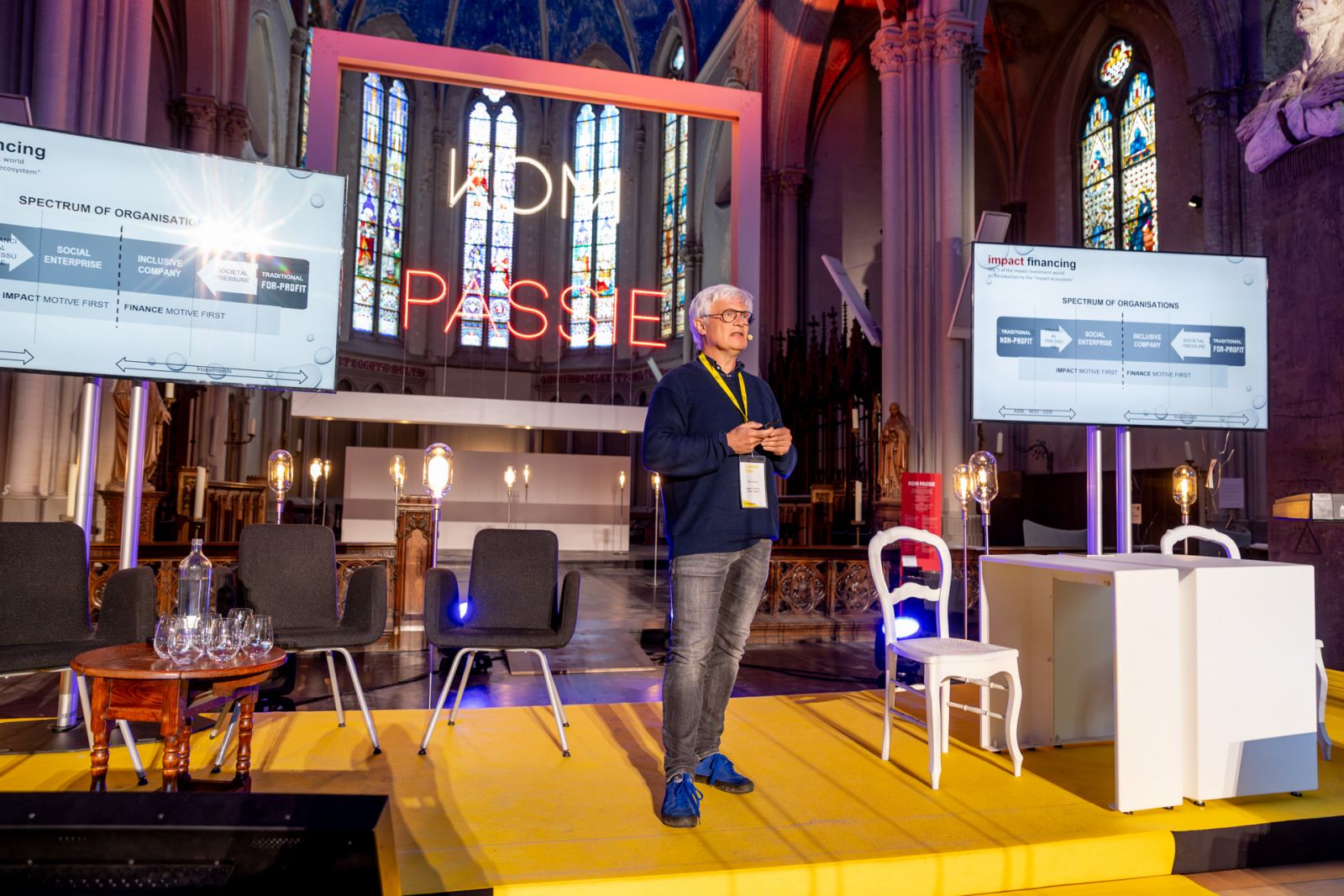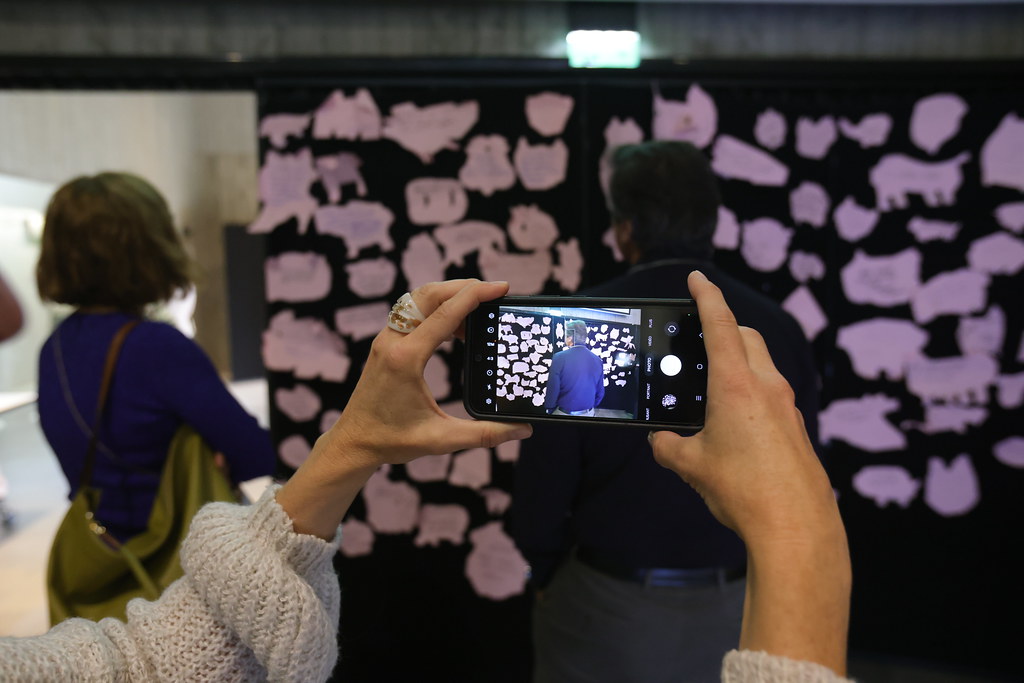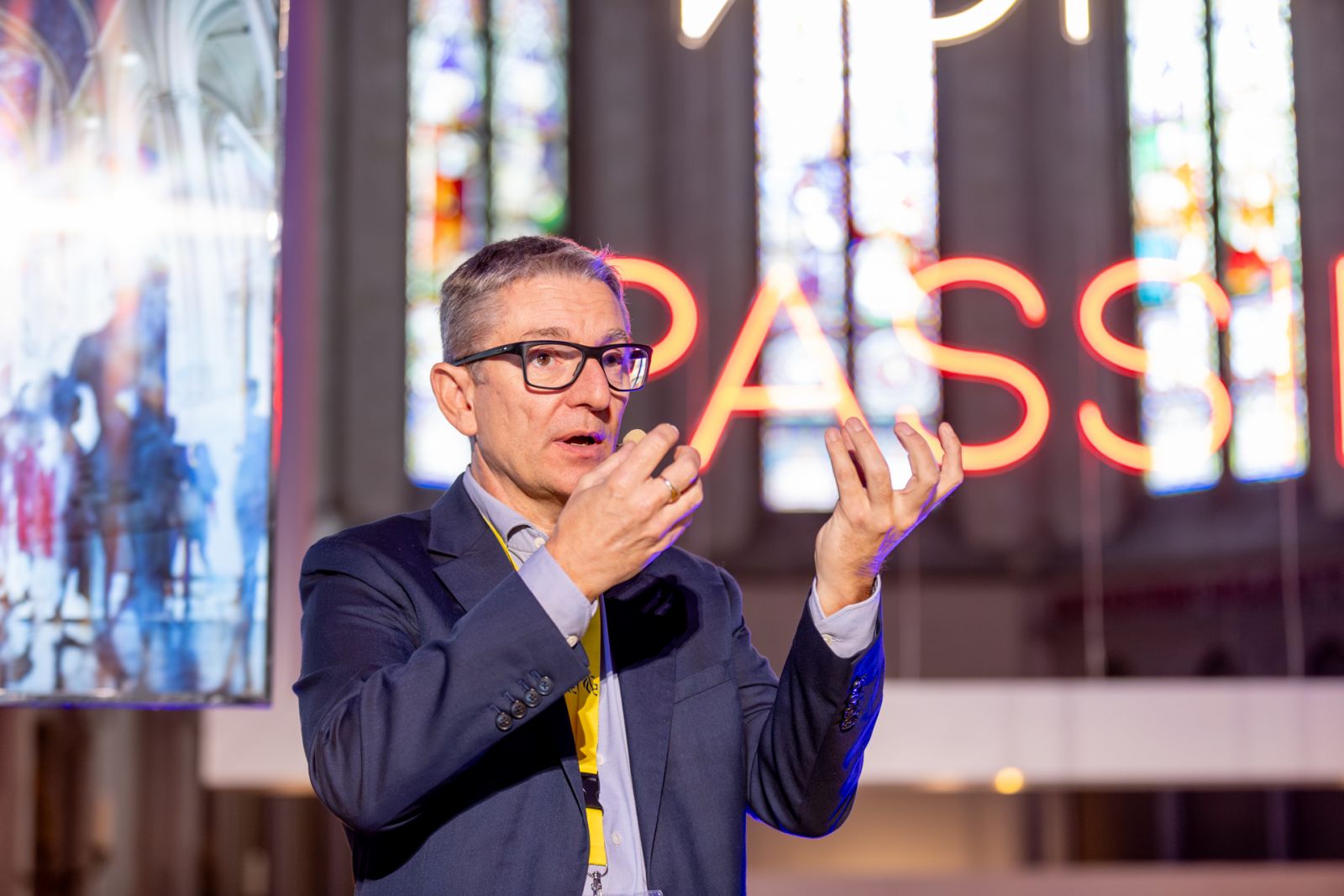Impact Day + GDS Forum 2024: Imagining the Unconventional!

© All photos courtesy of GDS Movement
For this think-tank-conference aimed at tourism professionals and convention managers, change is as inevitable as it is necessary and looms over a backdrop where climate emergency and a new 'local' deal will define the future of these same destinations. The 2024 Impact Day + GDS Forum held in Brugges was all about disrupting conventional approaches to urban tourism, presenting collective stories of resilience and driving value for the benefit of the communities and habitats around us. Three big messages came out: more social funding, stability in certification criteria is desirable, and sensible communication of impacts projects. Our magazine manager, Manuel Fernandes, was there and tells us all about it in these lines.
‘Disruption’, ‘holistic approach’, ‘retargeting’, ‘added-value’, each industry has its own buzzwords in order to navigate discourses and guide collective thought processes. Words are essential to instigate organised reactions, to sew in letters a manifesto, but if they are stripped of their real meaning and chewed on incessantly, they end up falling into the void of the ancient Agoras. Our journey with event legacies began a long time ago but it gained new momentum with the launch of the Copenhagen Legacy Lab in December 2019. From then on, this locomotive of stakeholders and social outcomes travelled to other stations picking up agencies, associations and PCOs, who in synergy (another buzzword, I know) set up pioneering conferences and lifted the veil on the true meaning of the word: impact. "Stop polishing the poo!" we heard at this meeting. Perhaps there is a grain of truth in this: instead of breaking with the past, we are tempted to persist with failed models, in rekindling dry powder.
On the morning of 14 October, the Church of St Magdalene in Bruges saw these themes presented and debated with more substance than pretension at the Impact Day that preceded the 2024 GDS Movement Forum. Proposed as ‘a one-day forum to redefine the role of the business events sector in promoting social, economic and environmental transformation and regeneration,' the programme ranged from a destination methodology, flagship conferences and social financing for impact. Its executors also have a long history in this field: in 2022, the VISITFLANDERS Convention Bureau had already initiated, together with #MEET4IMPACT, a legacy creation and impact measurement strategy to guide the region's events agenda for the following two years. This strategy has been incorporated into its impact methodology, which takes into account the positive and long-term knock-on effects that conferences in the region have on Flemish society. For this to happen, the methodology consists of 4 essential phases: Definition, engagement, measurement and communication. The project is defined by the vision of a conference as a game-changer, both for the sector and the association's members and for the communities that can be influenced by that discipline or impact plan. Evelyne Bardyn, director of the VISITFLANDERS Convention Bureau, said, “Today is an important milestone that marks the beginning of a future – a future where meaningful conferences have an even greater, long-term impact.”

This empowering discussion around DMOs and convention bureaux has had a great ally in #MEET4IMPACT. The major gaps concerning the lack of mentoring tools, methodologies and practices have been addressed by Geneviève Leclerc, president and CEO of the legacy agency since its foundation - in 2022 we had already discussed this causal need for associations to sign up to these social commitments. All of this multiplied into various faces and expressions on that key day in Brugges. Professor Jan Beyne from the Antwerp School of Management tried to converge sustainability and the circular economy with the tangible results of our actions, especially in the professional context of our lives. “Impact is about the effect and not the intentions of the action of an individual. It is about making a difference!”
There was also room to get new perspectives with members of the European Academy for Childhood Disability (below) - recipient of the 2024 Incredible Impacts Programme award - who at the conference in Brugge applied their EACD+ programme to widen access to sport, culture and technology for people with early disabilities, thus helping them to improve their quality of life. Following the success of EACD2024 in the Belgian city, EACD is looking to expand the programme to future host destinations, as well as setting up an Impact Creation Working Group to raise awareness of the needs of people with disabilities in a more inclusive approach. The 2023 WDSF World Breaking Championship in Leuven went beyond economic impact to bring together interdepartmental and impact-orientated policy communities for sport and urban culture in Flanders. The championship also served to draw attention to the well-being of young people through active participation in hip hop culture, promoting and strengthening the innovative community in Leuven.

In the afternoon, the topic discussed was social financing for impact with the renowned Belgian helmsman Piet Colruyt (pictured below) from Impact House. Founded on the belief that the greatest social impact can be created when non-profit and for-profit organisations strengthen each other, this project decrees that it's time to abandon the traditional distinction between social and commercial and move towards a model where these worlds help each other, seeing entrepreneurship as an engine for positive social and environmental innovation. From his personal background in his family business Colruyt (one of Belgium's largest supermarket chains), Piet realised that he could and should put his experience at the service of social entrepreneurs, impact investments and a viable business model to reconcile the three P's - People, Planet and Profit.
Afterwards, Ben Hainsworth and Maraika Geisterfer-Black took to the stage to demonstrate the European Association for the Study of the Liver (EASL) value creation from its latest congresses and impact projects. Impact is not simply a word or an abstract concept at EASL and is not limited to its members, partners and delegates. In 2022, the EASL launched a series of impact projects called Love Your Liver in London, together with the International Liver Congress, which they decided to reshape for their congresses in Vienna (2023), Milan (2024) and Amsterdam (2025). Love Your Liver was developed to raise awareness of liver health, promote early detection and care, and develop local professional skills in the field of hepatology. Each year, the EASL team organises projects tailored to the local community to reduce the burden of liver disease across Europe and catalyse change in the meetings industry to encourage more socially responsible event practices.

The GDS Forum - a place where the pigs where left to engage!
Over the next two days, the second edition of the GDS-Forum took us to a special place that marks the environmental imagination and natural heritage of West Flanders. The Zwin Natural Park is a nature reserve next to the North Sea, protected since 1953 and known for being the international airport for birds. Famous for its wide variety of salt-resistant plants, such as sea lavender and migratory birds, the site was an excellent eye-opener for the climate emergency (a recurring theme of this forum). The combined theme of the different workshops, group activities and “Let Pigs Fly” sessions brought participants together around a refreshing and alternative approach to the topics of urban (over)tourism, visitor economy, tourism data management and purposeful partnerships. At this “annual unconference”, CVB and DMO leaders interacted with sustainability managers on the strategy and concerted direction of destinations to overcome the limits of innovation and transform intentions into regenerative actions.
There was a particularly interesting and captivating session where, through peer work, some destinations and companies were able to share their projects in order to overcome obstacles and improve skillsets for the future challenges of these destinations. An example I followed was that of Jukka Punamaki, senior advisor for the City of Helsinki who in partnership with domestic rival, Tampere, started the Urban Climate Leaders Group consisting of the largest hotel chains, fair centres and local attractions. The Impact? A common agreement was made to join the domestic Sustainable Travel Finland programme and to sign the Glasgow declaration. A challenge? When it comes to actual money to shared investments in environmental protection, the room went quiet.

Certification was also one of the main themes of the working groups, which frequently requested stability and harmony in the evaluation criteria of their stakeholders. VisitBerlin, for example, through its Head of Sustainability, Luisa Mentz, displayed a proper response to the needs of their MICE suppliers to embark on a sustainable management system for third-party certification. The success story? Almost 80 suppliers have become certified third parties by Sustainable Berlin. The downside? Many still struggle with implementing these protocols and others don't feel the pressure to act (a shocker you might add).
All in all, the issues, learnings, solutions and impact formulas multiplied among the participants and often resulted in tangible and complementary conclusions: business often trumps social priorities as numbers trump causes, any incoming conference has a legacy potential for the host destination - depending on the angle from which it is analysed, and (echoing throughout the room repeatedly) there is still a lack of subventions and financing for social and environmental projects in consultation with partners.

“The key to establishing a new conversation at the destination level is to bring everyone into the room and talk, and this is done in two ways. We need to bring everyone to our room, but we have to go into other people's rooms. So one of the things I've really thought about this conference is why don't I go to that urban planners conference? Why don't I go to the architects' conference? Because at its core, the GDS is about three things: how to create the new mindsets needed for the future, new sets of skills and new sets of tools. At this conference there was a lot about this change of mentality, about a necessary change of language," Guy Bigwood, CEO of GDS-Movement told us at the end of the Forum.
The GDS-Movement and BeCause Partner to Accelerate Sustainable Tourism
The GDS-Movement has partnered with BeCause, a Danish start-up that is revolutionising the way the global hospitality, travel and tourism industries manage their sustainability data, to help tourism and events organisations, including Convention and Visitor Bureaus (CVBs), Destination Management Organisations (DMOs) and National Tourism Organisations (NTOs), gain unprecedented insight into their region's sustainable accommodations and offerings.
GDS-Movement members can now access a specially designed data overview on the BeCause platform that shows them a comprehensive, real-time view of the state of sustainability of their destination's hotel landscape. Specifically, they will be able to see at a glance which hotels, restaurants, attractions, beaches and experiences have valid sustainability certifications, which will provide them with a reliable basis for building a targeted sustainability strategy.
"One of the greatest challenges destinations face today is accessing accurate data about the sustainability practices of their supply chains. Our partnership with BeCause directly addresses this challenge, helping DMOs, CVBs, and NTOs create more regenerative, resilient destinations that benefit both visitors and residents," says Guy Bigwood. "By utilising the BeCause platform, destinations participating in the GDS-Index will be able to assess their environmental performance more efficiently, complete the index faster, and communicate their sustainability initiatives more effectively to stakeholders, including governments, clients, and visitors,’ Bigwood added."








